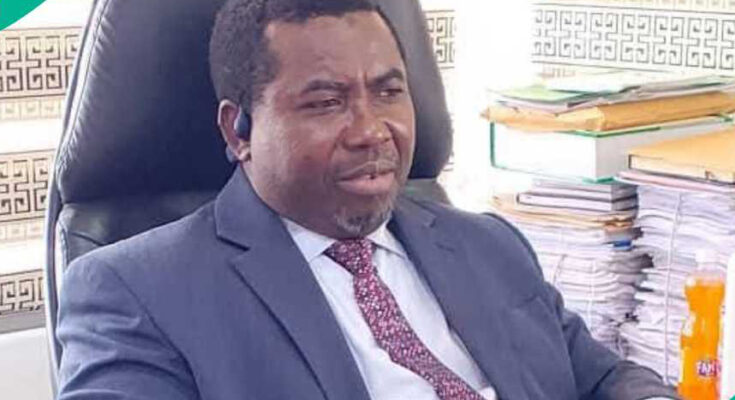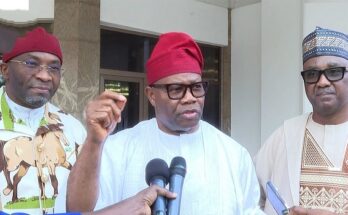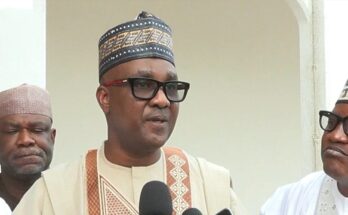Chairman of the Independent National Electoral Commission (INEC), Prof. Joash Amupitan (SAN), has pledged to conduct a comprehensive audit of the commission’s Results Viewing Portal (IReV) to identify and address the technical issues that undermined public confidence during the 2023 general elections.
Speaking when he appeared before the Senate for screening, on Thursday, Amupitan said the audit would help determine the nature of the glitches that affected the real-time transmission of results, as well as assess the current capacity of INEC’s electoral technology systems.
“I have to audit the system, if I’m given the opportunity, to see what is actually wrong and whether we have what it takes as it is now,” Amupitan said.
He explained that the IReV portal, along with the Bimodal Voter Accreditation System (BVAS), was introduced to enhance the transparency and integrity of elections, noting that technical challenges experienced during the 2023 polls raised concerns about the system’s effectiveness.
Amupitan noted that while the IReV was designed as a safeguard for comparison and verification, it was never intended to replace manual collation of results.
He added that inadequate communication of this distinction contributed to the misunderstanding that trailed the use of the portal during the elections.
“The Supreme Court has clarified that IReV is not an electronic collation system. However, it was meant to provide checks and balances to enhance credibility. Unfortunately, this was not properly explained before the election,” he said.
Amupitan vowed that trust and ethical conduct would be the cornerstone of his leadership.
“I think that trust is a major concern. We will work out an internal mechanism to try the behaviour of humans. I’m taking this position on trust, and my people must also appreciate that they hold their positions on trust. We will set up an ethical committee to review what has happened in the past because complaints have been made, yet no action has been taken. We will pursue every complaint and follow through,” he added.
He also stressed the need for collaboration among relevant agencies — including the Nigerian Communications Commission (NCC), National Identity Management Commission (NIMC), and service providers — to improve the reliability of election technologies.
“It is not just INEC’s responsibility. Other institutions that support the process must also work together to ensure that Nigerians can trust the technology we deploy,” he added.
Beyond technology reforms, Amupitan assured lawmakers that he would take steps to strengthen INEC’s institutional independence in line with constitutional provisions.
He acknowledged that the commission’s autonomy has often been limited by delayed release of funds and a lack of clarity regarding its constitutional powers.
“Although the law provides that funds should be released a year before elections, in practice, this has not always been done on time. This creates financial constraints for the commission,” he said.
Amupitan promised to review existing laws and administrative frameworks to identify and address factors affecting INEC’s independence.
“We will look at the spirit and letter of the Constitution, as well as the laws made by the National Assembly, to ensure that INEC truly operates as an independent body. We shall audit the system and deal with any challenges accordingly,” he said.




